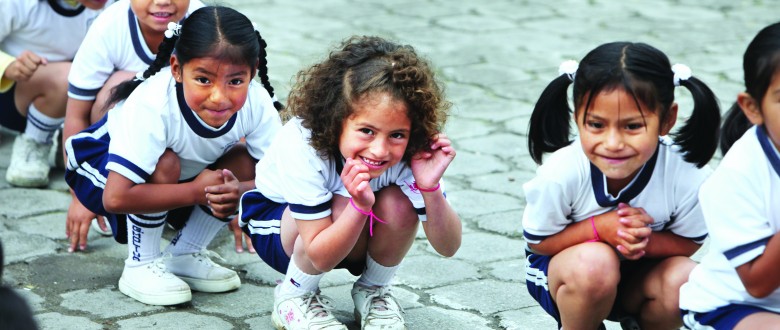
Celebrate?
Yes! Today we celebrate International Women’s Day, and honour all women ànd men who stick out their necks for equal rights between women and men, in the past and today.
Isn’t it strange that we still need to have this conversation? As long as women and men don't have equal opportunities, which is still the case as I’m writing this in 2018, it’s our duty to keep the debate alive. Even though I personally can’t think of a single valid argument why anyone should be treated differently based on whether or not they’re male or female.
It’s very strange.
Celebrate?
So, not really. Because as long as unfair treatment of women is tolerated, there’s not a lot – or better even: nothing – to celebrate. We’re talking about a deep injustice that keeps more than half of the world’s population small.
Over 131 million girls still don’t have access to education. And those who do go to school, are too often confronted with what we call ‘gender-based violence’, violence that primarily affects women and feeds off the power imbalance between the sexes.
Girls and young women who are brimming with talent don’t get the same opportunities as boys to develop to their full potential. This stunts the future of our societies and unjustly sweeps so many individual dreams and rights under the rug.
Above all: keep fighting
As newly appointed General Director of VVOB, I want to make a commitment today.
More than is already the case, VVOB will take on the fight against gender inequalities in education with its partners. Quality education is for àll, and even if it’s only a handful of learners that are excluded, there can be no talk of quality. Eliminating discrimination is a crucial condition for real quality education.
VVOB doesn’t just contribute to gender equality through our work. It’s part of our DNA.

That’s why International Women’s Day is so important. Not just to (not) celebrate. But to clarify once again that gender inequality cannot and will not be tolerated. Not by us as individuals, not by our organisation, and not by our society.
Sven Rooms
VVOB - General Director
VVOB's gender projects
VVOB pays attention to gender in every aspect of its work.
But we also implement projects in which gender is the main focus:
- Girls on MARS in Rwanda creates gender-responsive schools where girls' learning outcomes in maths improve.
- iGROW in Suriname tackles gender-based violence and promotes sexual and reproductive health and rights in vocational schools.
- TIGER in Cambodia transforms a teacher education college and 40 schools into centres of excellence for gender-responsiveness.




